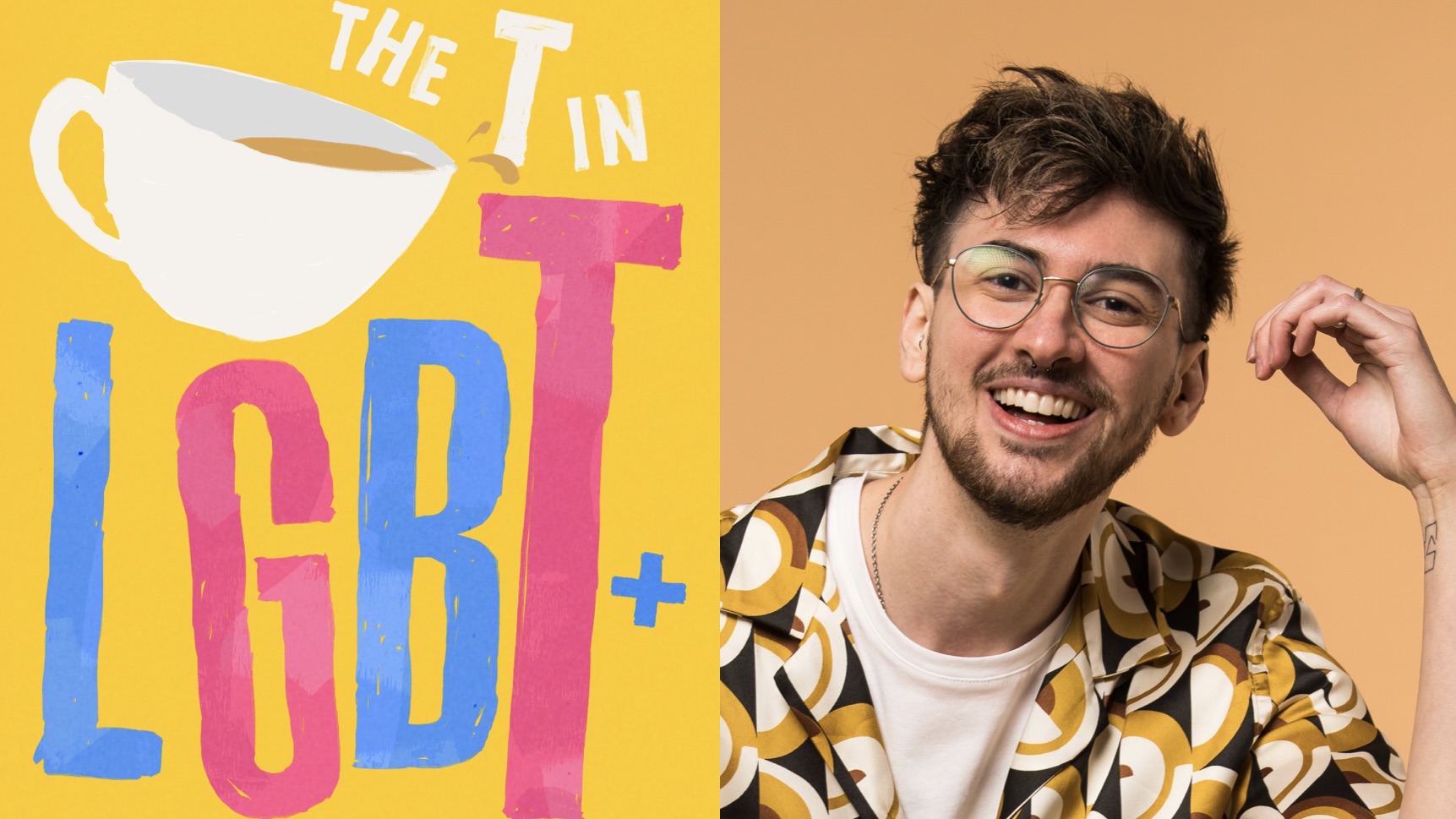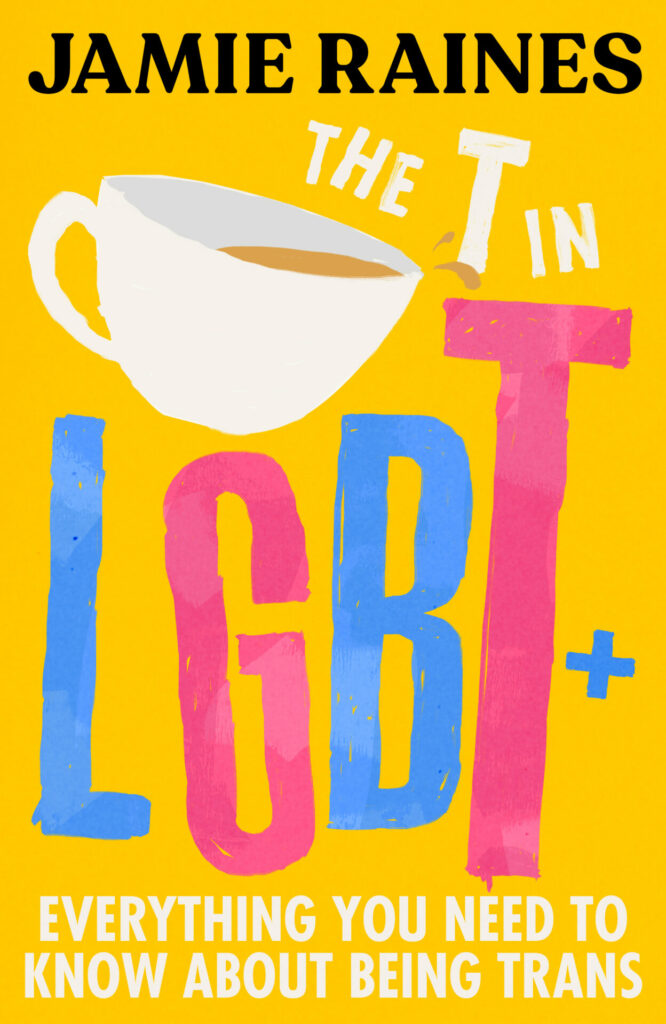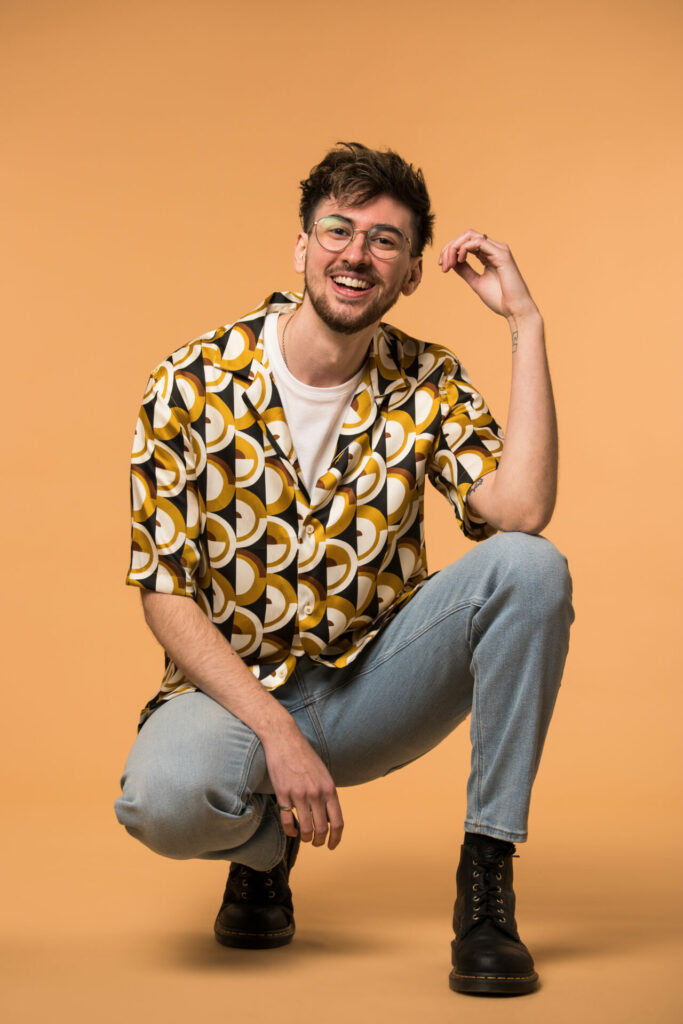‘Being trans doesn’t exclude you from finding love in all of its forms’
Jamie Raines' The T in LGBT is a guide to help, explore and learn about everything surrounding gender identity.

Trans author Jamie Raines’ The T in LGBT is a new guide offering advice on the topic of gender identity.
The new book – out June 29th – tackles an array of trans-related topics with the aim to provide approachable equality and diversity education.
In this extract from The T in LGBT, Jamie interrogates the topic of dating and relationships through the lens of the trans experience.
DATING & RELATIONSHIPS
You are lovable. I don’t think trans people get told this enough. I certainly didn’t hear it – ever – when I first came out, and I think being told that I was lovable would have helped a huge amount. I did, however, realise this was a big concern for my mum. That somehow, coming out could change whether I would live a happy and fulfilled life, including finding a partner. Not because she didn’t think I could or should, but because of society’s opinion and treatment of trans people. So, to all the trans people reading who need to hear it: you are lovable. Being trans doesn’t exclude you from finding love in all of its forms.
I genuinely thought that my only way to experience dating and relationships was to delay coming out and transitioning. I was 16 at the time, I identified as a lesbian, and had been in two relationships so far, neither of which had felt right because I didn’t feel right. They also … just … weren’t right. I really wanted to experience those ‘typical teenage moments of dating. Flirting, going on a cringey date, having that ‘do they/don’t they like me’ panic. But I just couldn’t hold off being myself. This is all sounding really sad, but I’m pleased to report that none of my fears were true. I’ve been in a relationship for the past 11 years with someone who loves me and accepts me fully for who I am.
There’s definitely a misunderstanding among both cis and trans people, that dating becomes something entirely different when someone is trans. We’re not aliens, we just have a slightly different lived experience that doesn’t necessarily have to impact dating and relationships in a big way. The way trans people find dating and relationship partners, for example, is much the same as for cis people. I found my partner in college. Maybe you’re into someone from your school, or university, or workplace. Of course, we can’t forget that a lot of modern-day happily-ever after stories begin on dating apps, the concept of which terrifies me. Not because I’m trans, but because I’m genuinely so awful at flirting. You should hear me with Shaaba – if we weren’t already in love I’m sure I’d be single.

Dating apps are so varied. Many mainstream ones allow you to share that you’re trans publicly on your profile, if that’s something you want to do. For apps that don’t have this as a feature, some trans people choose to share this anyway in their bios. Some apps have the aim of being trans-friendly and inclusive – but do keep in mind that this doesn’t mean every individual using the app will be trans-inclusive, even if the company has this ethos.
It’s definitely a good idea to shop around and find which apps you feel most comfortable using. There are dating apps made specifically for the LGBT+ community, and some, even more specifically, for trans people. Some trans people feel most comfortable dating other trans people, or happen to socialise with other trans people more frequently, leading to ‘T4T’ (or ‘trans for trans’) relationships. It’s perfectly okay for people to want T4T relationships. It makes sense that a shared experience, unspoken understanding, and guaranteed acceptance of your identity would take away some of the scary aspects of dating.
What’s not okay is that trans people should only ever be expected to date other trans people. I’ve been told by multiple people that it would just ‘make sense’ for me to date not only a trans person, but an ‘opposite trans person’. The idea behind these suggestions comes from cishet-normative expectations of traditional sex positions and having biological children. But people are not two parts of a puzzle that must fit together in a very traditional way – not to mention, not all trans people are straight.
Segregating marginalised groups and expecting them to only find love with each other is at best an unnecessary limitation, and at worst discriminatory. Regardless of which apps you’re using, we all know how important it is to stay safe when it comes to online dating. For trans people there are a couple of extra safety considerations to keep in mind. Everybody has to kiss a few frogs, and sometimes those frogs can turn out to be particularly toxic if they don’t take the news of you being trans very well.
This might not even be in person, so think carefully before you trust someone with personal information and photos (including those naughty nudes). You wouldn’t want those being shared without your permission or used to out you in wider contexts. If you are meeting in person, please make sure that you tell a trusted person in your life who you are meeting and where. This should be a general dating rule but is especially important if you plan on coming out on that particular date, just in case you’ve found a toxic frog.

When Do I Tell Them? A big question that comes up around being trans and dating is when to tell someone you’re trans. The answer to this largely depends on when you feel comfortable and safe, and while there’s no magical formula that spits out a date, there are two guiding factors to help you determine the big ‘When’. The primary factor, and it’s one that must be taken seriously, is consent around sex. Not only is it the right thing to do (and hey, consent is totally hot), it’s also the legal thing you have to do.)
For example, potential partners need to be fully aware if you’re going to use a pack-and-play device, and so naturally, coming out would need to happen before this. The second factor is when you determine a potential partner should know. I know, I know: Jamie, you cop out. This feels very non-specific, but that’s because there are so many differences that influence when this could be.
Maybe you’re the kind of person who’s very upfront; you might have it in your bio, or told people before a first date, because that’s just a rule you want to live by. Maybe you’ve had a not-so-great past experience that’s led you to be more cautious now. If telling a previous date resulted in them publicly and abruptly ending things, it would make sense why somebody might now choose to go on a first date and only decide to tell them once they’re sure they wanted to see them again (they might even decide to not come out in person this time.
It could be that you go on a date, have a whirlwind romance, and get all the butterflies super fast so you want to tell them because it’s getting serious. Or maybe you’re taking things super slow. If you’ve only gone on three dates in three months, it might take you longer to feel ready to come out to someone. The attitude of the person you’re dating might impact when you come out to them. Maybe they brought up how awesome they think Elliot Page is, and now you know, this is your moment. Or maybe they say something that’s a huge red flag and instead of coming out of the closet, you climb out the bathroom window (can you tell I’ve watched too many rom-coms?). See? So many influences.
The biggest one definitely seems to be personality. Some people don’t want to potentially waste their time developing a connection unless they know that person is accepting, while others want to know if they’re going to develop a connection before being so open about their transness. I personally would opt to have my transness front and centre so that I wouldn’t have to come out in person, and so I’d avoid spending time with someone who might not want to continue dating after finding out I’m trans. Again, there’s no right or wrong answer.
The T in LGBT by Jamie Raines is out June 29th.
